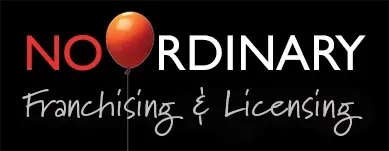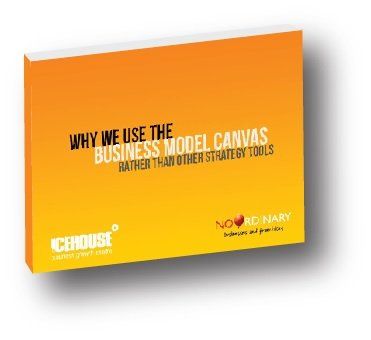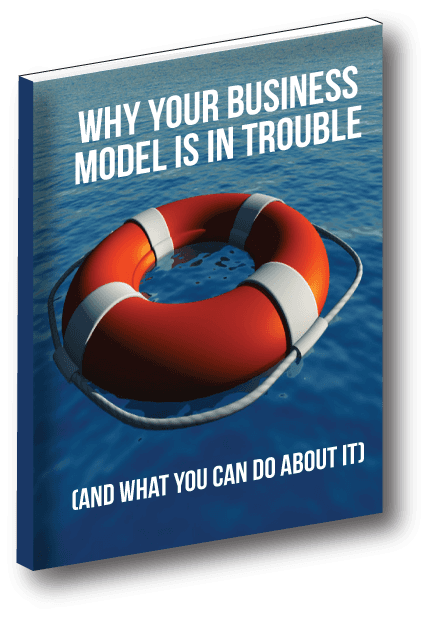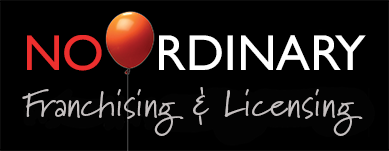WHY YOU’RE NOT MAKING ENOUGH PROFIT
WHY YOU’RE NOT MAKING ENOUGH PROFIT
Are you making enough money from your business? Research shows that most business people, particularly those who run SMEs, don’t believe they make enough.
Here are 8 of the reasons that may be so, and what to do about it:
1. You’ve got the basics wrong
Can you say right now, this minute, what your business’s revenue, cashflow and profit are? Do you know the difference between your markup and your margin? You may be surprised how often these questions get business owners scratching their heads. Even if you’re not one of them, you may be making the mistake of focusing only only the financial KPIs of your business and not the potentially more important metrics that lead to the financial KPIs. These could be metrics such as productivity, employee engagement, conversion rates and customer satisfaction. It’s vital to the success of any business to determine what metrics make the biggest difference to your business, then track these and use them as management tools. Business consultants will tell you that to increase your profits, you need to increase revenue and/or decrease costs, but there’s much more to it than that. Economists will show you graphs like this, but what they don’t understand is that pricing is as much an art as a science.
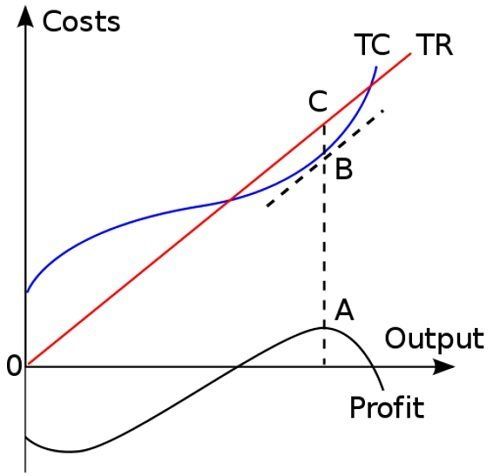
2. What’s most important—your people or your systems?
Many business owners say people. Others say both are equally as important. The second is closer to the truth. Without effective systems, even the best people can’t do their jobs as well as they should. In fact, without systems to monitor what’s important to your business and track your people’s performance against it, you wouldn’t even know who’s performing and who’s not. Systems don’t have to be digital, they can be as simple as paper timesheets. But with so many free apps and subscription-based cloud software available now, you’d be crazy not to use them. The problem is that there’s no one perfect system. I’ve always thought that the ideal would be an end-to-end system that looks after every part of your business, from customer relationship management to operations, and from sales and marketing to financial management. Do you think I could find one? In the end, I had to develop my own. But today there are systems that meet the wider needs of many businesses — maybe yours?

3. You’ve got bad people
By bad, I don’t necessarily mean criminal. I mean people who aren’t committed to your business, who aren’t engaged in what they do, and yes, who are probably stealing from you — not things, but time. One of the best ways to fix this is by getting the right people, but what is meant by ‘right’ and how do you find these people? And once you have them on board, as I said above, even the best people will flounder without the right systems - and leadership. I’m no HR specialist but I do know a thing or two about techniques for employing the right people, setting up systems to make the most of their abilities, developing your leadership skills, building teams and, the magic bullet when it comes to people management, providing an objective and independent evaluation of your business’s needs in this area.
4. You don’t know where you’re making and losing money
Or you find out too late to do anything about it. This is often a combination of all or some of the points above. You may have a financial management system in place (see point 2 above) but that won’t help you if you’re not measuring the right KPIs, the important things in your business (see point 1 above). And even if you are measuring the right KPIs, they won’t mean a thing if your people (see point 3 above) aren’t entering the right data, or are entering it too late. Garbage in, garbage out. Finally, it doesn’t matter one jot how good your KPIs, systems and people are if you’re uncertain what to do with the information you’re getting, or you fail to act on it. It’s said, quite rightly, that you can’t manage what you can’t measure, but the question is: How do you manage it?
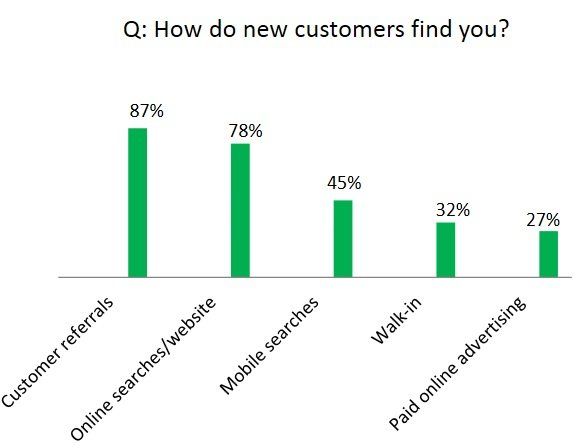
5. You’re trying to make too much profit
Not possible, right? Well, it can be — if you’re trying to generate large profits at the expense of your employees or suppliers. In recent years corporate profits have escalated but wages growth has remained stagnant. That’s not a great motivator for employees. They’ve taken to the streets in protest - McDonald’s is the classic example — and productivity has plummeted. The same goes for suppliers who’ve been squeezed by corporates intent on maximising shareholder returns. They’ve been forced to cut their costs, reduce quality and cap wages — the classic domino effect. The short-term effect of all this may be higher profits — but what will the longer-term effect be? The key to optimising profits is to achieve a balance, a win-win with both your employees and your suppliers, who are, after all, partners in your success.
6. You’re hanging on to duds
Who are the duds in your customer portfolio? The customers who supported you in the beginning but now expect you to support them by never raising your prices. The customers who only buy specials and sale items. The customers who contribute least to your profitability, yet often take up more of your time than more profitable customers. If you can’t upsell or upgrade them, it’s time to say goodbye. This isn’t easy, but it’s something that a home building business in the United States had to do when the owners decided they needed to upgrade its sub-standard systems. To give themselves the necessary time and space to upgrade, they only worked with high-profit customers for a year. Their revenues plummeted by half. But guess what they found? Their profit only declined slightly on the previous year. And the following year, armed with better systems and a new attitude, the company’s profit soared along with its revenues.

7. You think that profit is more important than purpose and value
Leaders of businesses big and small say that having a clear purpose and offering customers real value is essential to attracting the right people, creating a productive workplace, and keeping businesses focused on what’s important through times of disruptive change. One of the ten richest people in the world, Charles Koch, has said he has never been guided by “how do I maximise my profit?” but rather “how do I create value for others?”. “If you don’t create value for your customers, they will leave you,” he said. “And if you don’t create value for employees, they will leave you as well.”
Like to increase your profits while optimising your company’s value for customers and employees? Contact me for a free Initial Consultation.
I'm Robin La Pere, no ordinary business and franchise consultant. Over more than 20 years in business as a business unit director, CEO and business and franchise owner, I have developed strategies for value and profit optimisation that have proven to be enormously effective.
I would welcome the opportunity to talk about applying these strategies in your business. Contact me for a free Initial Consultation.
Relevant articles
FREE E-BOOK:DO YOU NEED A BETTER APPROACH TO YOUR BUSINESS STRATEGY?
Why we use the BMC
Thanks for downloading your free e-book
Oops, there was an error sending your message.
Please try again later
Please try again later
Need to futureproof your business?
I offer these services to help you manage disruption, prevent stalling and promote innovation in your business:
- Threat and opportunity evaluation
- Business model generation
- Strategy planning
- Key business driver analysis and development
- Conference and seminar presentations
- Innovation workshop facilitation
- Business improvement
- Business re-engineering
- ‘The Disruptor’ Programme (see below)
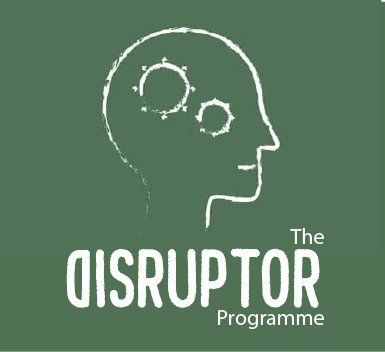
Are you facing new or greater competition? Is your industry being disrupted? Is your business growth in danger of stalling?
The best way to predict the future is to create the future. In today’s fast-changing world, it's disrupt or be disrupted. The good news is that small to medium sized businesses can be more innovative and agile than large corporations. The Disruptor Programme has been developed specifically to help SME leaders to:
- empower them with the thinking and practical skills to face change and lead a more agile and innovative business
- gain insights in how their customers see value and where opportunities exist to take advantage of this
- examine the company’s competencies and culture in order to identify opportunities to improve and innovate
To arrange a free personal Initial Consultation with me on how The Disruptor Programme can help you to futureproof your company, contact me now on +64 9 360 6063 or Skype Noordinary1262 or send me your email address and I will get back to you within 24 hours.
Disruptor Service Request
Thank you for contacting me about The Disruptor service.
I will get back to you within 24 hours to arrange for your free Initial Consultation.
I will get back to you within 24 hours to arrange for your free Initial Consultation.
Oops, there was an error sending your message.
Please try again later
Please try again later
FREE E-BOOK:GIVE YOUR BUSINESSA NEW LEASE ON LIFE
Download Why Your Business Model is in Trouble ebook
Thanks for downloading your free e-book
Oops, there was an error sending your message.
Please try again later
Please try again later
Are you making enough money from your business? Research shows that most business people, particularly those who run SMEs, don’t believe they make enough.
Here are 8 of the reasons that may be so, and what to do about it:
1. You’ve got the basics wrong
Can you say right now, this minute, what your business’s revenue, cashflow and profit are? Do you know the difference between your markup and your margin? You may be surprised how often these questions get business owners scratching their heads. Even if you’re not one of them, you may be making the mistake of focusing only only the financial KPIs of your business and not the potentially more important metrics that lead to the financial KPIs. These could be metrics such as productivity, employee engagement, conversion rates and customer satisfaction. It’s vital to the success of any business to determine what metrics make the biggest difference to your business, then track these and use them as management tools. Business consultants will tell you that to increase your profits, you need to increase revenue and/or decrease costs, but there’s much more to it than that. Economists will show you graphs like this, but what they don’t understand is that pricing is as much an art as a science.

2. What’s most important—your people or your systems?
Many business owners say people. Others say both are equally as important. The second is closer to the truth. Without effective systems, even the best people can’t do their jobs as well as they should. In fact, without systems to monitor what’s important to your business and track your people’s performance against it, you wouldn’t even know who’s performing and who’s not. Systems don’t have to be digital, they can be as simple as paper timesheets. But with so many free apps and subscription-based cloud software available now, you’d be crazy not to use them. The problem is that there’s no one perfect system. I’ve always thought that the ideal would be an end-to-end system that looks after every part of your business, from customer relationship management to operations, and from sales and marketing to financial management. Do you think I could find one? In the end, I had to develop my own. But today there are systems that meet the wider needs of many businesses — maybe yours?

3. You’ve got bad people
By bad, I don’t necessarily mean criminal. I mean people who aren’t committed to your business, who aren’t engaged in what they do, and yes, who are probably stealing from you — not things, but time. One of the best ways to fix this is by getting the right people, but what is meant by ‘right’ and how do you find these people? And once you have them on board, as I said above, even the best people will flounder without the right systems - and leadership. I’m no HR specialist but I do know a thing or two about techniques for employing the right people, setting up systems to make the most of their abilities, developing your leadership skills, building teams and, the magic bullet when it comes to people management, providing an objective and independent evaluation of your business’s needs in this area.
4. You don’t know where you’re making and losing money
Or you find out too late to do anything about it. This is often a combination of all or some of the points above. You may have a financial management system in place (see point 2 above) but that won’t help you if you’re not measuring the right KPIs, the important things in your business (see point 1 above). And even if you are measuring the right KPIs, they won’t mean a thing if your people (see point 3 above) aren’t entering the right data, or are entering it too late. Garbage in, garbage out. Finally, it doesn’t matter one jot how good your KPIs, systems and people are if you’re uncertain what to do with the information you’re getting, or you fail to act on it. It’s said, quite rightly, that you can’t manage what you can’t measure, but the question is: How do you manage it?

5. You’re trying to make too much profit
Not possible, right? Well, it can be — if you’re trying to generate large profits at the expense of your employees or suppliers. In recent years corporate profits have escalated but wages growth has remained stagnant. That’s not a great motivator for employees. They’ve taken to the streets in protest - McDonald’s is the classic example — and productivity has plummeted. The same goes for suppliers who’ve been squeezed by corporates intent on maximising shareholder returns. They’ve been forced to cut their costs, reduce quality and cap wages — the classic domino effect. The short-term effect of all this may be higher profits — but what will the longer-term effect be? The key to optimising profits is to achieve a balance, a win-win with both your employees and your suppliers, who are, after all, partners in your success.
6. You’re hanging on to duds
Who are the duds in your customer portfolio? The customers who supported you in the beginning but now expect you to support them by never raising your prices. The customers who only buy specials and sale items. The customers who contribute least to your profitability, yet often take up more of your time than more profitable customers. If you can’t upsell or upgrade them, it’s time to say goodbye. This isn’t easy, but it’s something that a home building business in the United States had to do when the owners decided they needed to upgrade its sub-standard systems. To give themselves the necessary time and space to upgrade, they only worked with high-profit customers for a year. Their revenues plummeted by half. But guess what they found? Their profit only declined slightly on the previous year. And the following year, armed with better systems and a new attitude, the company’s profit soared along with its revenues.

7. You think that profit is more important than purpose and value
Leaders of businesses big and small say that having a clear purpose and offering customers real value is essential to attracting the right people, creating a productive workplace, and keeping businesses focused on what’s important through times of disruptive change. One of the ten richest people in the world, Charles Koch, has said he has never been guided by “how do I maximise my profit?” but rather “how do I create value for others?”. “If you don’t create value for your customers, they will leave you,” he said. “And if you don’t create value for employees, they will leave you as well.”
Like to increase your profits while optimising your company’s value for customers and employees? Contact me for a free Initial Consultation.
I'm Robin La Pere, no ordinary business and franchise consultant. Over more than 20 years in business as a business unit director, CEO and business and franchise owner, I have developed strategies for value and profit optimisation that have proven to be enormously effective.
I would welcome the opportunity to talk about applying these strategies in your business. Contact me for a free Initial Consultation.
Relevant articles
FREE E-BOOK:DO YOU NEED A BETTER APPROACH TO YOUR BUSINESS STRATEGY?
Why we use the BMC
Thanks for downloading your free e-book
Oops, there was an error sending your message.
Please try again later
Please try again later
Need to futureproof your business?
I offer these services to help you manage disruption, prevent stalling and promote innovation in your business:
- Threat and opportunity evaluation
- Business model generation
- Strategy planning
- Key business driver analysis and development
- Conference and seminar presentations
- Innovation workshop facilitation
- Business improvement
- Business re-engineering
- ‘The Disruptor’ Programme (see below)

Are you facing new or greater competition? Is your industry being disrupted? Is your business growth in danger of stalling?
The best way to predict the future is to create the future. In today’s fast-changing world, it's disrupt or be disrupted. The good news is that small to medium sized businesses can be more innovative and agile than large corporations. The Disruptor Programme has been developed specifically to help SME leaders to:
- empower them with the thinking and practical skills to face change and lead a more agile and innovative business
- gain insights in how their customers see value and where opportunities exist to take advantage of this
- examine the company’s competencies and culture in order to identify opportunities to improve and innovate
To arrange a free personal Initial Consultation with me on how The Disruptor Programme can help you to futureproof your company, contact me now on +64 9 360 6063 or Skype Noordinary1262 or send me your email address and I will get back to you within 24 hours.
Disruptor Service Request
Thank you for contacting me about The Disruptor service.
I will get back to you within 24 hours to arrange for your free Initial Consultation.
I will get back to you within 24 hours to arrange for your free Initial Consultation.
Oops, there was an error sending your message.
Please try again later
Please try again later
FREE E-BOOK:GIVE YOUR BUSINESSA NEW LEASE ON LIFE
Download Why Your Business Model is in Trouble ebook
Thanks for downloading your free e-book
Oops, there was an error sending your message.
Please try again later
Please try again later
